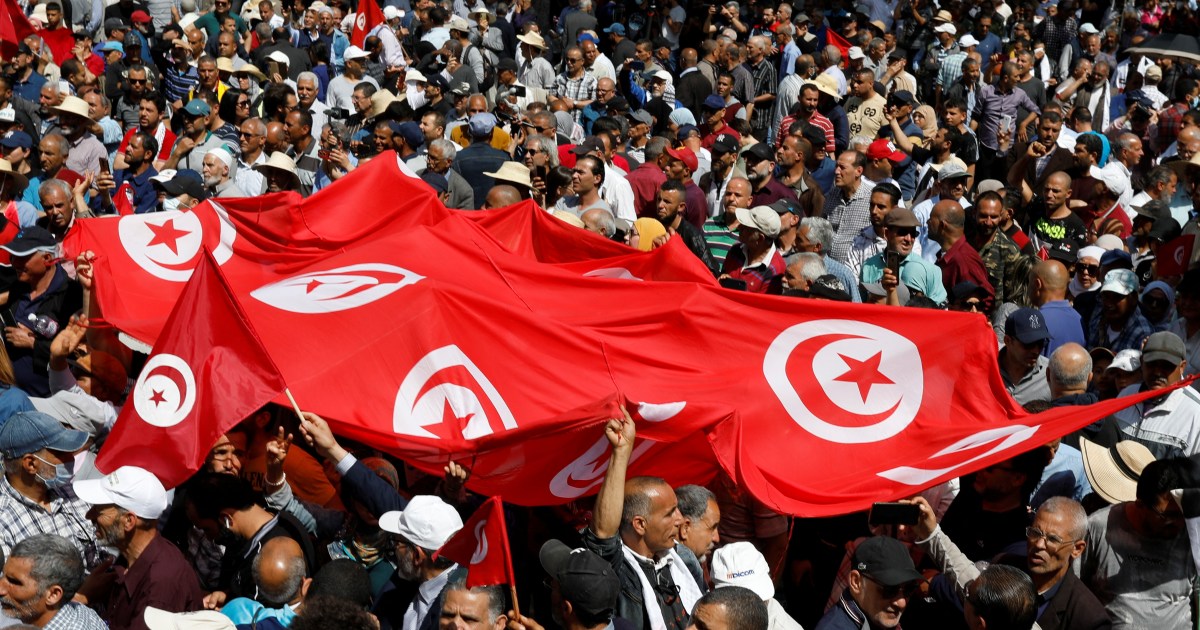The Tunisian Labor Union announced that it would boycott a "formal and known results" dialogue on political and economic reforms called by President Kais Saied, who is preparing to reformulate a new constitution.
On Friday, the Tunisian president announced the formation of a committee to prepare for a draft revision of the constitution for a "new republic" through a "national dialogue" that excluded political parties.
A presidential decree was issued in the Official Gazette to establish an independent national body called the “National Consultative Commission for a New Republic” to “submit a proposal related to preparing a draft constitution for a new republic, and this project is submitted to the President of the Republic.”
The General Labor Union - which is the largest political force in Tunisia - explained in its final statement after the meeting of its administrative body in the city of Hammamet (east) that the dialogue is "a formality in which roles are determined unilaterally and civil forces are excluded."
The Secretary-General of the Union, Noureddine Taboubi, stressed in a statement to reporters that the dialogue "does not rise to solving the dilemma in the country and does not chart a better future for it, and it ignores the active political components in the country."
general strike
The union - which says it includes more than a million members - said that the administrative body had agreed to organize a national general strike in protest against the wage freeze and the bad economic situation, in a move that is expected to open a confrontation with Saeed and put him in the most difficult test.
A spokesman for the Tunisian General Labor Union, Sami Tahiri, said that the date of the strike by members of the Tunisian General Labor Union working in public services and government companies will be announced at a later time.
Among the parties that were excluded from the president's dialogue is the Ennahda Movement, which is the largest bloc in the parliament, which the president dissolved, and considers what he has done as a "coup against the constitution and revolution."
In the past few days, there were protests called by the Salvation Front and "Citizens Against the Coup", rejecting the president's political path.
Dozens of law professors in Tunisia announced today, Monday, their refusal to appoint the deans of law faculties to the advisory committee charged with drafting a new constitution for the country.
This came in a statement signed by 76 former law professors and deans of law faculties in the country, a copy of which reached Anadolu Agency.
The statement denounced what it described as the superior dealings with academic scientific institutions. We deplore the inclusion of male and female university graduates in these political projects, which would give illusory and misleading legitimacy to these projects.
Since last July 25, Tunisia has been witnessing a severe political crisis, at which time Saied began imposing exceptional measures, including freezing the competencies of Parliament, issuing legislation by presidential decrees, dismissing the government and appointing new ones.
Most of the political and civil forces in Tunisia reject these measures, and consider them a coup against the constitution.

